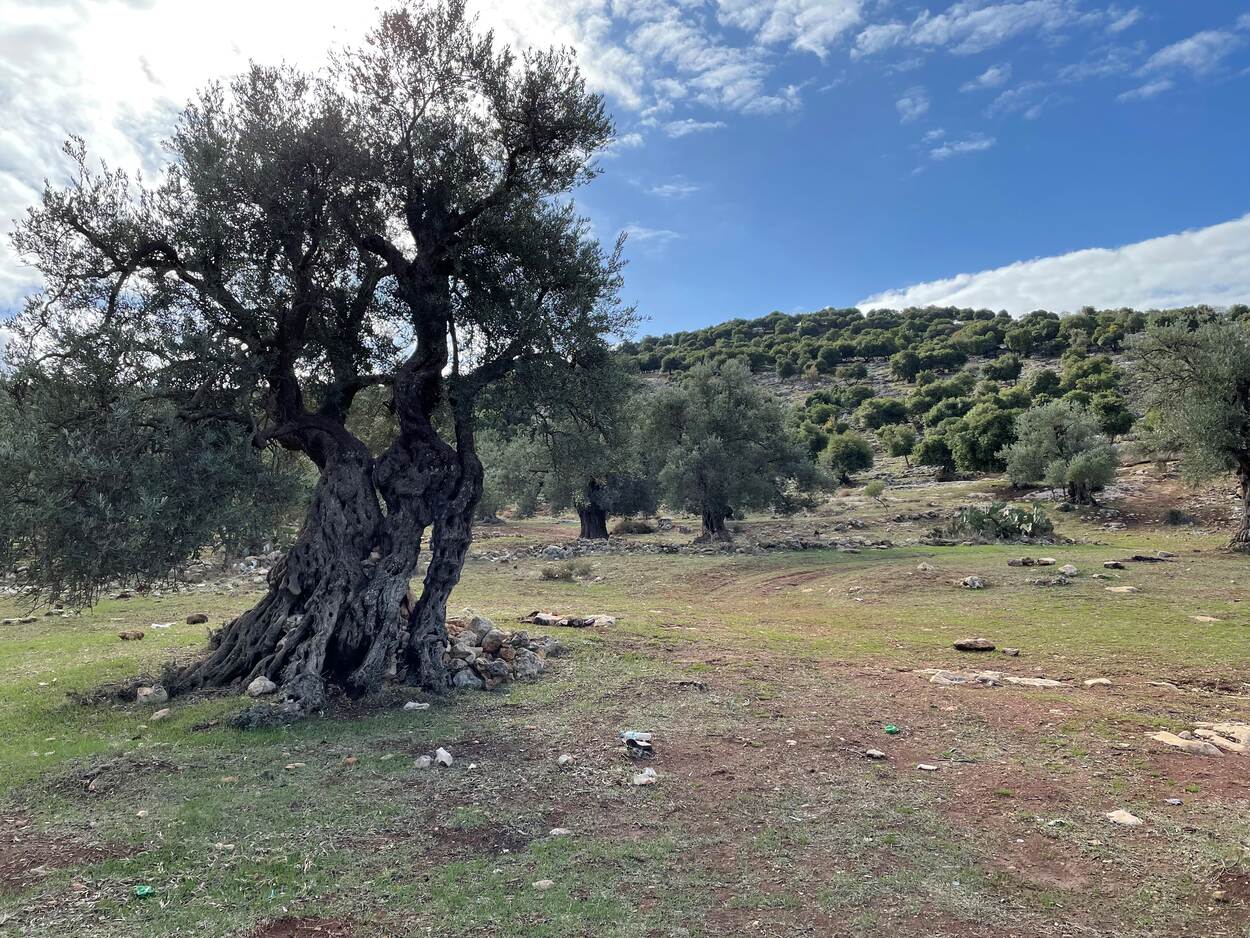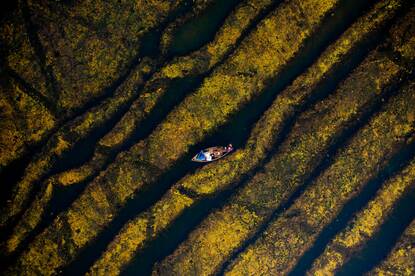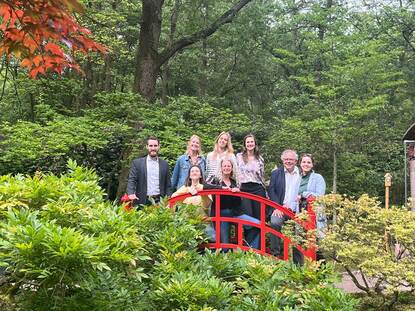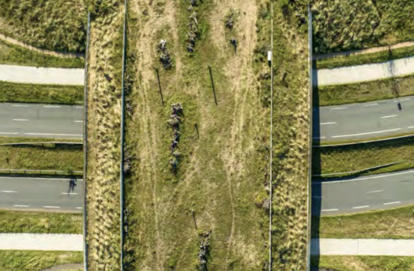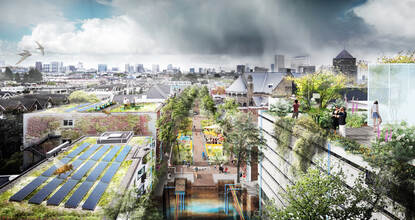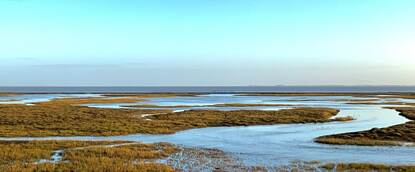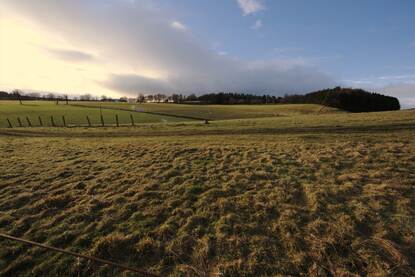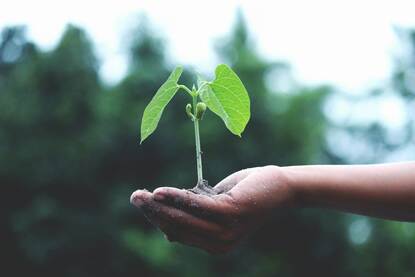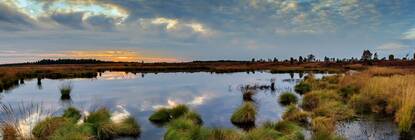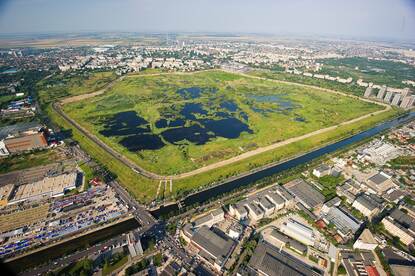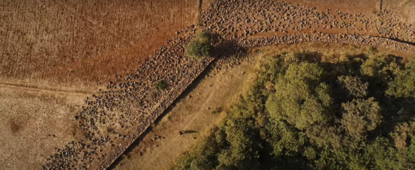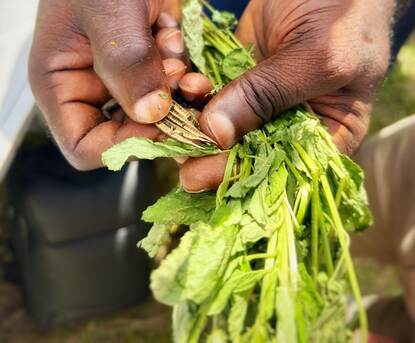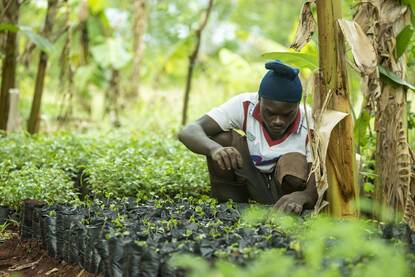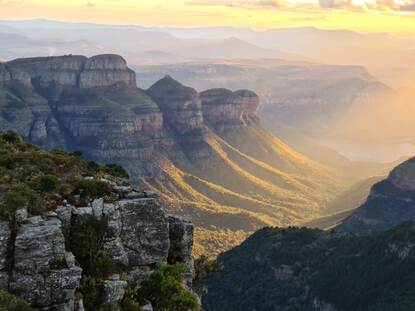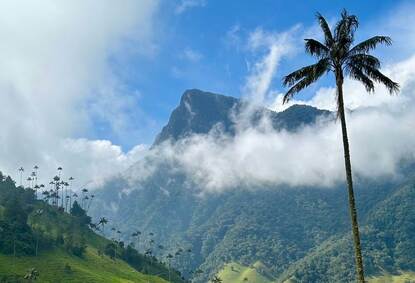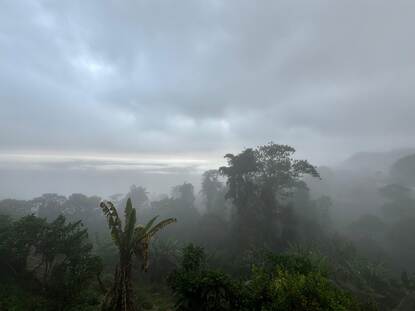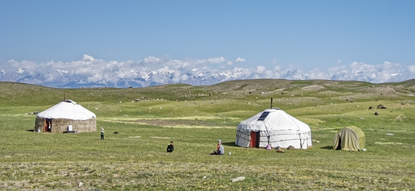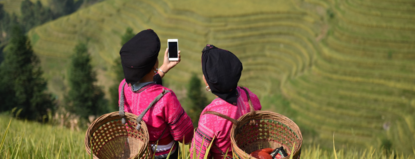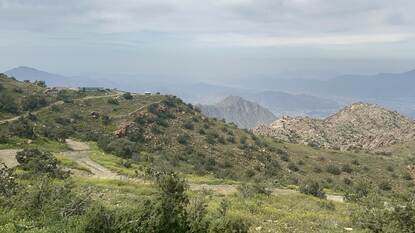Foto Tycho Vermeulen
Egypt and Jordan face increasingly fragile ecosystems. Reduced rainfall and rising temperatures put pressure on their biodiversity. The Netherlands recognizes the importance of protecting biodiversity in these regions. That is why the Netherlands Agricultural Network (LAN) team at the Dutch Embassy in Cairo funds local grassroots projects focused on capacity building and sustainable solutions for both people and nature, moving beyond just resource provision.
Natural cycles in Egypt and Jordan have long depended on the flooding of the Nile or the rain-catchment that feeds the Jordan river. However, damming, erosion, and upstream water-use have disrupted these cycles, causing degraded water quality and salinity issues. Overgrazing, deforestation, and pollution add to this strain. Climate change, marked by rising temperatures and erratic rainfall, exacerbates the issue. As a result, both countries struggle to counter desertification.
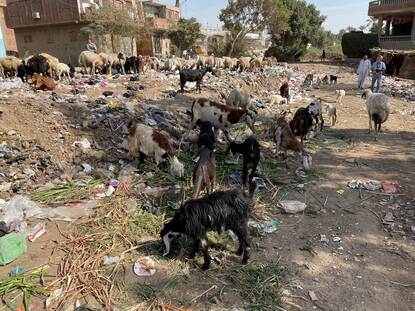
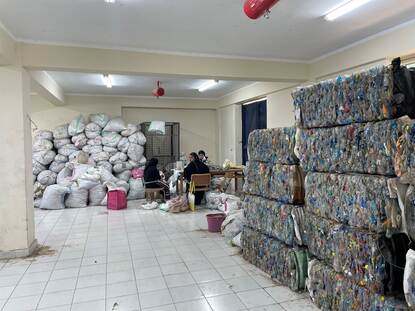
Local biodiversity knowledge and the need for support
Both Egypt and Jordan have robust knowledge of their biodiversity, with institutions like Jordan’s Royal Botanical Garden (RBG) and Egypt's Nature Conservation Sector (NCS) leading the way. Also, policy makers are aware of the unique ecosystems and natural capital in both countries. This has translated into concrete ambitions and plans. However, the implementation of these ideas requires (public-private) partnerships and financial support.
The Netherlands is one of the countries that has entered partnerships with both Egypt and Jordan. In general, the Netherlands focuses on the empowerment of local communities to support local biodiversity, waste reduction, and ecosystem restoration, as well as on preventing future degradation and improving water management. In addition, the Netherlands Agricultural Network (LAN) team at the Dutch Embassy in Cairo focuses on interventions along the following lines:
-
Functional agrobiodiversity
-
Nature-inclusive agriculture
-
Ecotourism
-
Ecosystem restoration
Functional agrobiodiversity in the context of land consolidation
In farming communities, land fragmentation is a growing issue as plots get smaller with each generation. Dutch-funded projects, like Land-at-scale, are working on reversing this by consolidating land use. Land consolidation can directly gain an estimated 10% of productive land by taking out all the hedges, foot paths and other field separators. Unfortunately, those field separators are important contributors to local biodiversity through the available vegetation and no (or reduced) pesticide application, while receiving excess water from the field.
The Netherlands is exploring measures to prevent the potential loss in biodiversity through land consolidation. Experts from Wageningen University Research (WUR) collaborate with local botanists, experts on endemic species and eco systems, to identify endemic species for functional agrobiodiversity: plants that attract natural enemies for the dominant pests. In the meantime, the total portfolio of tools in nature-inclusive agriculture is used for the end-design of biodiversity-inclusive land consolidation.
In Jordan, the LAN team funds an assessment of the relevance and potential contributions of Jordan's native plant species to functional biodiversity conservation. WUR, the Royal Botanical Garden (RBG) and National Agricultural Research Centre (NARC) are all working together on this project. As a starting point, the RBG's extensive overview of native species in Jordan will be used as a resource . It will be combined with knowledge of WUR on plant species and their biodiversity-values for agriculture, tapping from earlier work, such as: 4 Practical brochures on Functional Agro Biodiversity. This study – with expected publication early 2025 – will feed into the ongoing (Dutch-funded) programs in Jordan on food security as well as promote the planting of native species to the different stakeholders from the government, extensionists, local communities, farmers and academia.
‘Biodiversity conservation depends on community-driven solutions’
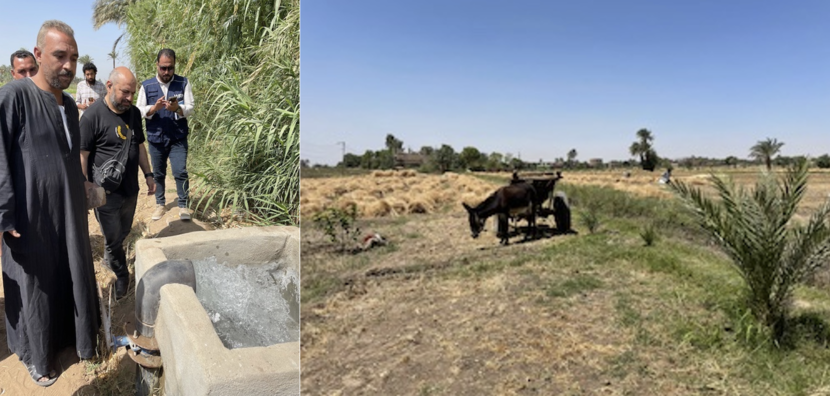
Nature-inclusive agriculture
Several larger Dutch-funded programs in Jordan aim to improve local and regional food security. Food security requires an approach of resilience, reducing the dependency on external inputs, while dealing with the effects of climate change. Nature-inclusive agriculture brings such resilience. The programs revolve around engaging local communities and experts, capacity building and providing support. However, specific strategies for preserving biodiversity depend on the local context:
- The program of Holland Horti Support uses cooperative formation to support farmers in open field cultivation. As part of capacity building, the project's partners, WUR and Advance Consulting, present nature-inclusive strategies, such as introducing flowering crops (for pollinators), using functional agrobiodiversity (host for natural enemies), reducing pesticide uses, and improving soil management.
-
In the program of Jordan HortiFuture (JHF), the organizations Mercy Corps and Advance Consulting coach smallholder farmers by improving their earning models, mostly through producing more sustainably, followed by processing and marketing. The annual Olive Festival is a great place where many of these (mostly female) smallholders present their produce – mainly olives, pickled vegetables, herb and spice mixes – and further develop their marketing skills.
-
In the Rural Economic Growth and Employment Project (REGEP), JEDCO (Jordan Enterprise Development Corporation) promotes nature inclusive agriculture activities, such as:
- Promoting drought resistant varieties of vegetables through demonstrations in the highlands.
- Working on demonstration greenhouses for organic farming and integrated pest management.
- Reducing post-harvest losses.
- Providing grants for rainwater harvesting, hydroponic and other water efficient irrigation systems at a household level.
- Supporting the rehabilitation of rainwater harvesting ponds and deteriorated water networks to decrease water loss.
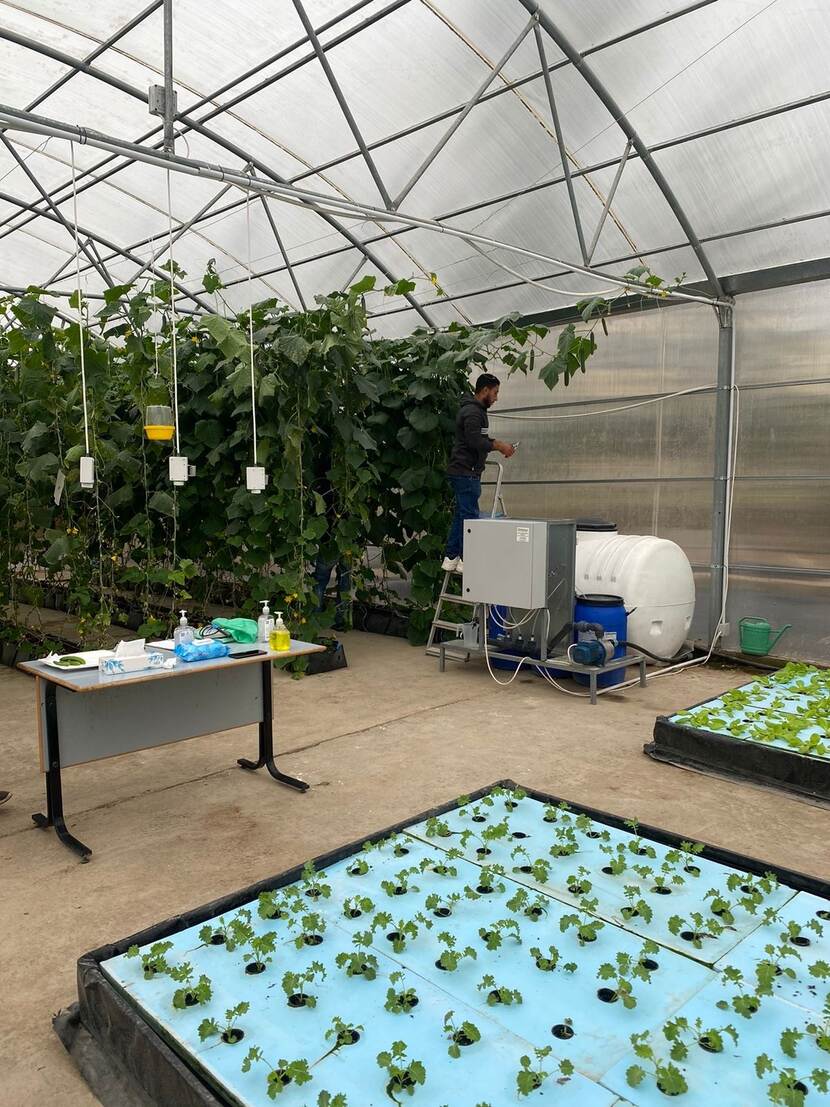
Ecotourism
Direct earning models for the local community are a clear and proven incentive for protecting biotopes and restoring nature. In Jordan’s Eastern Badia region, the Dutch-funded project NatureWorks empowers local communities to improve tourism experiences through conserving nature and biodiversity. Focusing on Al Shaumari and Al Dahek reserves, the project aims to fortify conservation initiatives through targeted programs and strategic partnerships. The comprehensive approach of NatureWorks ensures a harmonized, long-lasting impact on biodiversity, sustainable livelihoods and growth of ecotourism in the region.
Egypt is well known for its underwater ecotourism, but the Nile riverbanks contain gems that also warrant a visit. Given the pressures on land due to urbanization, those gems are unfortunately very small in size. One of those is the island of Al-Qursaya, situated centrally in Cairo. This island is populated by 1.500 people, an impoverished community of mostly fishermen and small-holder farmers.
The volunteer-initiative of Very Nile supports this local community with a program for waste collection and upcycling plastic. The initiative also operates a kitchen and child-daycare facility. Jumping on the wagon of this great initiative, a team of Dutch experts will help select functional biodiversity-elements and introduce nature-inclusive agriculture to support the local kitchen. With a team of local creatives, the LAN team aims to develop eco-tourism using both the local kitchen and produce while also including a unique tour through ancient Nile vegetation in one of the fishing boats.
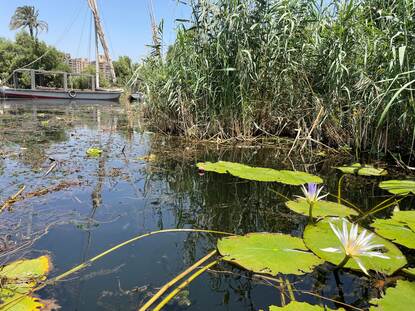
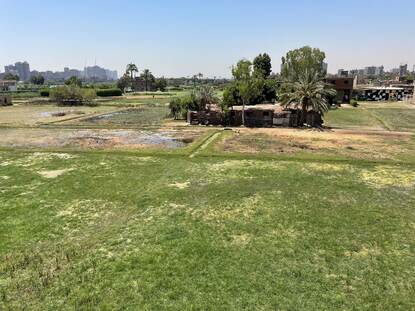
Ecosystem restoration in Jordan
The highlands in Jordan receive up to 600 millimeters of rain each year. However, these highlands are in a poor state causing issues with retaining water for a longer period of time. Years of overgrazing, excavations and mismanagement have resulted in an area with high levels of erosion and speedy run-off rainwater. Together with several partners, the LAN team engaged in a multi-stakeholder process for ecosystem restoration.
This process was a first step towards locally sustainable solutions to re-introduce endemic species, prevent erosion and retain rainwater. These solutions will only be sustainable if there is a local buy-in based on earning models (e.g., higher and reliable agricultural productivity) or another form of value-added for the local community.
A hopeful future for Egypt and Jordan’s biodiversity
In regions where water is scarce, preserving biodiversity depends on community-driven solutions. By engaging local stakeholders and providing financial and technical support, the LAN team aims to create lasting change. Through collaboration and a focus on sustainable earning models, these projects pave the way for a brighter future for Egypt and Jordan’s ecosystems.
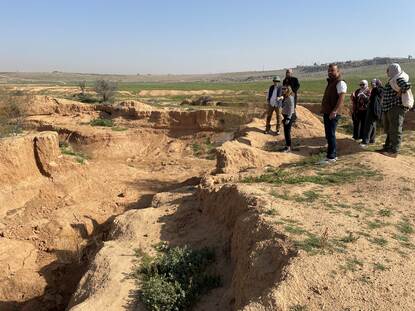
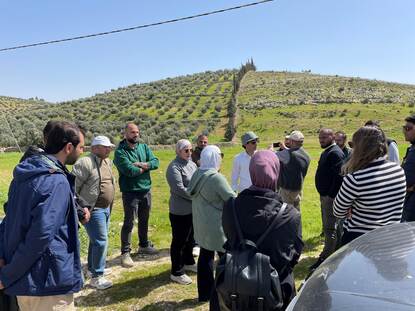
More information
Would you like to know more about community-driven solutions to biodiversity restoration in Egypt and Jordan? For more information you can visit the country pages of Egypt and Jordan at the website Agroberichtenbuitenland.nl of the Dutch Ministry of Agriculture, Fisheries, Food Security and Nature. You can also send an email to the LAN team at the Dutch Embassy in Cairo: kai-lvvn@minbuza.nl.
